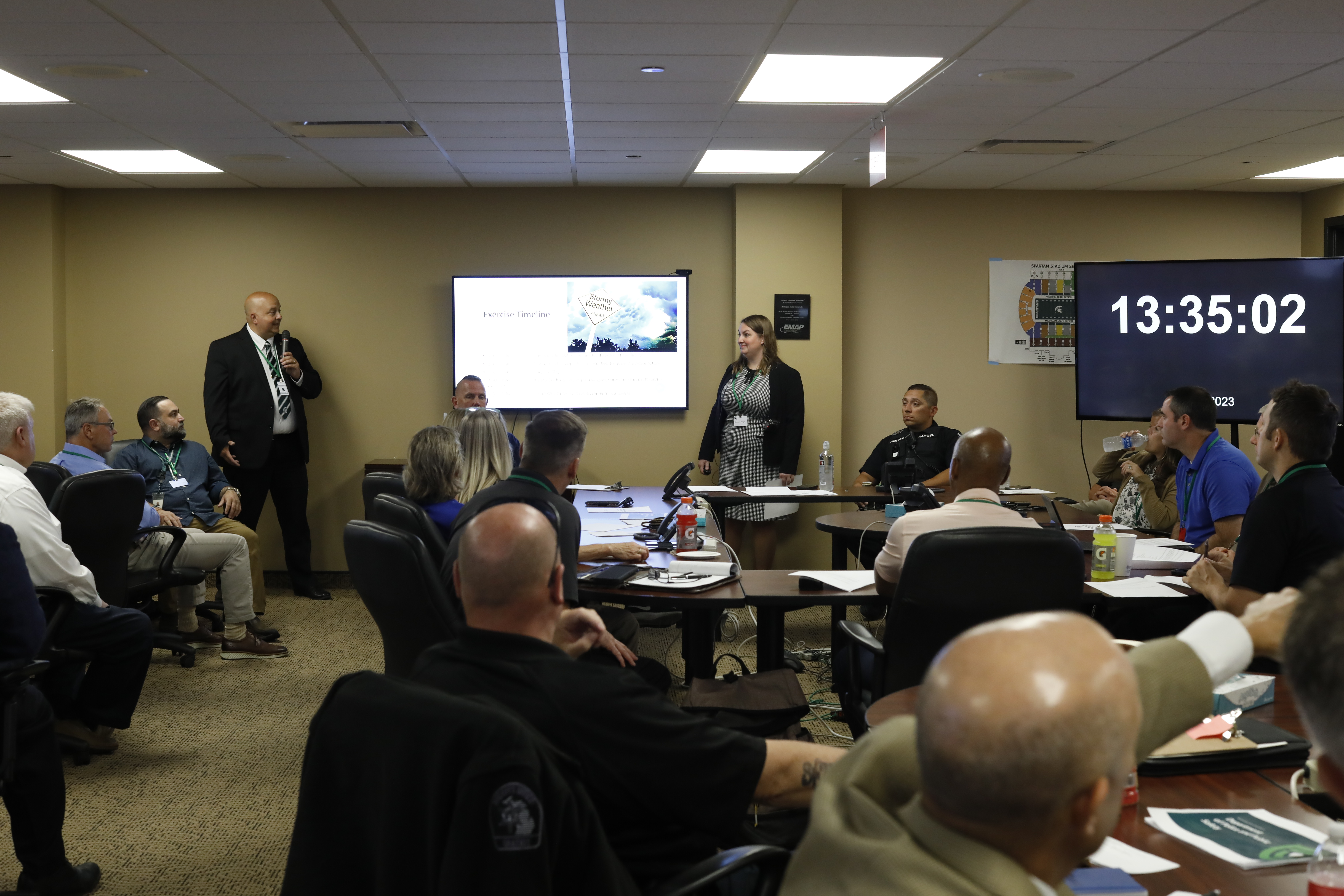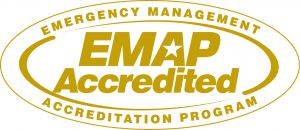The Support Services Bureau is led by Director Ryan Doyle. The bureau oversees Records & Analysis, Property & Evidence, Strategic Planning, Clery Compliance, and Quartermaster/Fleet.
The responsibility of the Emergency Management Division is to manage any emergency or disaster by protecting, planning, responding, recovering, and mitigating. Michigan State University became accredited in emergency management by the Emergency Management Accreditation Program (EMAP) in October 2017, being the fifth university in the world to achieve this distinction. In January 2023, MSU received a second accreditation term, becoming the third university in the country to meet these standards.
As part of the process for accreditation, the MSU Emergency Management Advisory Committee (EMAC) was created to coordinate the planning process. The EMAC Committee brings together stakeholders from across the institution.
The top eight hazards identified by EMAC include:
- Fire/hazardous material release
- Public health emergency
- Active shooter situations
- Other criminal activity (terrorism/arson/explosives, for example)
- Severe weather (tornado, windstorm, ice storm, blizzard, wind chill)
- Cyber intrusion or network breach
- Flooding
- Power outage
While the committee identified these eight hazards as the primary hazards, the program builds in resilient planning, training, and exercising programs to better prepare MSU for all hazards that may impact the institution.
The Property & Evidence Division is responsible for receiving, storing, recording, and disposing evidence in accordance with federal, state, local and departmental laws, regulations and policies. Property and evidence may be collected by members of the public between the hours of 8 a.m. and 5 p.m., Monday through Friday, by appointment only. To request an appointment, email evidence@dpps.msu.edu or call the Property & Evidence Division at 517-355-9034. Please note that the release of a firearm requires approval from the Chief of Police before an appointment may be scheduled. Members of the public must provide valid identification, such as a driver’s license, state identification card, or passport, prior to the release of any property. Items cleared for disposal will be released to the MSU Surplus Store. The Property & Evidence Division is also responsible for managing the department’s fleet and equipment.
The Records & Analysis Division serves as the central repository for the department’s records and provides detailed, proactive research and analysis of data and intelligence information to improve the efficiency, effectiveness and quality of public safety operations and response. All reports from the agency are reviewed for compliance, analyzed, and compiled into regular reports to assist in detecting crime trends, crime groups and other criminal activity on campus and in the local area. The Records & Analysis team, which includes student intel analysts, works closely with local law enforcement agencies and the Michigan State Police to share information on emerging threats at the state and national level. For more information on obtaining a report, please click here.
The mission of the Fire and Life Safety Division is the preservation of life and property through education, community engagement, prevention, investigation, and fire code enforcement across campus. The Fire and Life Safety Division acts in compliance with the national and state fire code. The division also ensures full Clery Act compliance, with the Clery Log available for reference here. Fire Marshal Thomas Miller can be contacted with any questions at firesafety@dpps.msu.edu or 517-432-7932.
MSU Classroom Emergency Guidelines
MSU Emergency Action Plan Template
Spartan Stadium Evacuation Game Plan Video
- January 27, 2025
- April 21, 2025
- July 21, 2025
- October 20, 2025
- December 15, 2025
These meetings are open to the public. If you are not part of the EMAC Committee and are interested in attending, please email Emergency Management at em@dpps.msu.edu.

